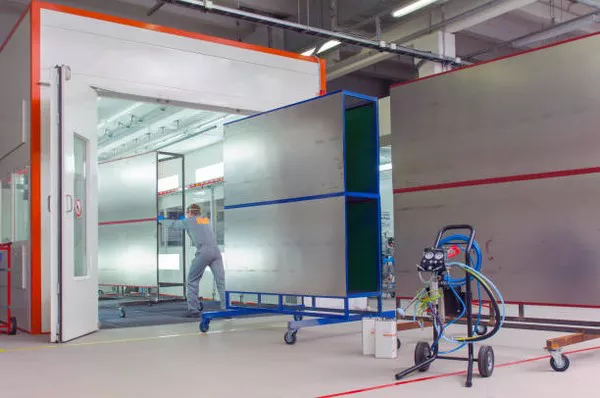Air compressors are vital pieces of equipment used in a variety of industries, including manufacturing, construction, automotive, and even home workshops. They power tools, inflate tires, and provide a steady stream of air for various applications. However, like any mechanical device, air compressors are prone to wear and tear, necessitating repairs from time to time. Understanding the cost of fixing an air compressor is crucial for budgeting and maintenance planning. This article delves into the factors that influence the repair costs and provides a detailed overview of what you can expect when repairing an air compressor.
Factors Influencing Repair Costs
Type of Air Compressor: There are several types of air compressors, including reciprocating (piston), rotary screw, and centrifugal compressors. Each type has different components and mechanisms, influencing the repair costs. For instance, rotary screw compressors tend to be more expensive to repair due to their complexity and the cost of parts.
Extent of Damage: The nature and extent of the damage significantly impact repair costs. Minor issues like replacing a valve or fixing a leak are relatively inexpensive. However, major repairs, such as replacing the motor or the pump, can be costly.
Age of the Compressor: Older compressors might be more expensive to repair due to the difficulty in finding replacement parts. In some cases, it might be more cost-effective to replace an old compressor than to repair it.
Parts Availability: The availability of parts can affect repair costs. If parts are readily available and common, the cost will be lower. However, if parts need to be specially ordered or are scarce, the cost will increase.
Labor Costs: Labor costs vary depending on the location and the expertise of the technician. In regions with higher living costs, labor charges will be higher. Additionally, specialized technicians who work on specific types of compressors may charge more for their services.
Maintenance History: Regularly maintained compressors tend to have fewer issues and, consequently, lower repair costs. Neglected compressors are more likely to suffer from major breakdowns, leading to higher repair expenses.
Warranty: If the air compressor is still under warranty, repair costs may be significantly reduced or even covered entirely by the manufacturer.
Common Air Compressor Repairs and Their Costs
Valve Replacement: Valves are crucial components in an air compressor. They regulate air flow and pressure. Replacing a valve can cost anywhere from $50 to $200, depending on the type and brand of the compressor.
Motor Repair/Replacement: The motor is the heart of the air compressor. Repairing a motor can range from $100 to $500, while replacing it can cost between $300 and $1,200. The wide range is due to the varying sizes and types of motors used in different compressors.
Pump Repair/Replacement: The pump compresses the air and is a vital component. Pump repairs can cost between $200 and $800, whereas replacing a pump can range from $500 to $1,500.
Tank Repair/Replacement: If the air compressor tank is damaged, it might be possible to repair minor leaks, costing around $50 to $150. However, if the tank is severely damaged, replacement is often the only option, costing between $200 and $600.
Electrical Repairs: Electrical issues can range from faulty wiring to control panel problems. Electrical repairs typically cost between $100 and $300, depending on the complexity of the issue.
Belt Replacement: Belts wear out over time and need replacement. This is a relatively inexpensive repair, usually costing between $20 and $100.
Filter Replacement: Filters need regular replacement to ensure the compressor operates efficiently. Filter replacements are relatively cheap, costing between $10 and $50.
Cost-Saving Tips for Air Compressor Repairs
Regular Maintenance: Routine maintenance can prevent many issues and extend the life of your air compressor. Regularly check and replace filters, inspect belts, and ensure all components are in good working order.
DIY Repairs: For minor issues, consider doing the repairs yourself. Many basic repairs, like replacing filters or belts, can be done with minimal tools and skills. Ensure you follow the manufacturer’s guidelines to avoid voiding any warranties.
Shop Around: Get quotes from multiple repair shops to ensure you’re getting the best price. Compare the costs and services offered before making a decision.
Use Genuine Parts: While aftermarket parts might be cheaper, they may not last as long or perform as well as genuine parts. Using genuine parts can reduce the frequency of repairs and extend the compressor’s life.
Consider Extended Warranties: If available, purchasing an extended warranty can save you money on repairs in the long run. Evaluate the cost of the warranty against potential repair expenses.
When to Consider Replacement Over Repair
Sometimes, repairing an air compressor is not cost-effective, especially if the compressor is old or has a history of frequent breakdowns. Here are some scenarios where replacement might be a better option:
Frequent Repairs: If you find yourself constantly repairing the compressor, the cumulative cost might exceed the price of a new one.
Obsolete Parts: For older models, finding replacement parts can be challenging and expensive. If parts are no longer available, replacement is the only option.
Inefficiency: Older compressors may be less efficient, leading to higher energy costs. Investing in a new, more efficient model can save money in the long run.
Major Component Failure: If a major component like the motor or pump fails and the repair cost is close to the price of a new compressor, replacement is the logical choice.
Conclusion
The cost of fixing an air compressor varies widely based on several factors, including the type of compressor, the extent of damage, and labor costs. By understanding these factors and regularly maintaining your compressor, you can manage repair costs effectively. While minor repairs are relatively inexpensive, major repairs can be costly, and in some cases, replacing the compressor might be more economical. Regular maintenance, using genuine parts, and considering extended warranties are some strategies to reduce repair expenses. Ultimately, balancing repair costs with the operational efficiency and reliability of your air compressor will ensure optimal performance and longevity.

